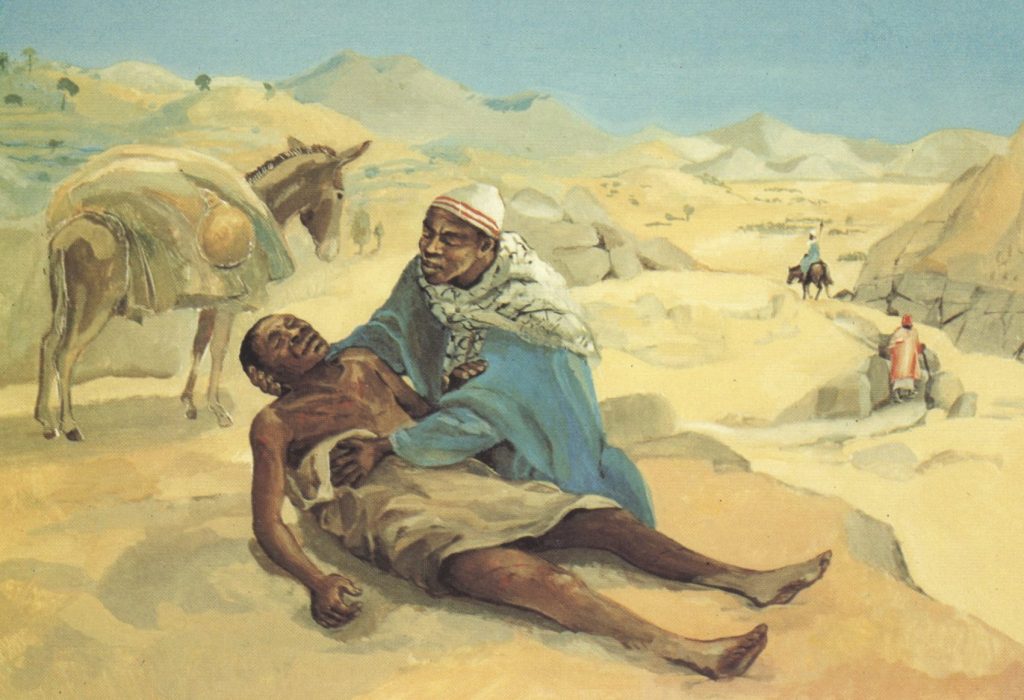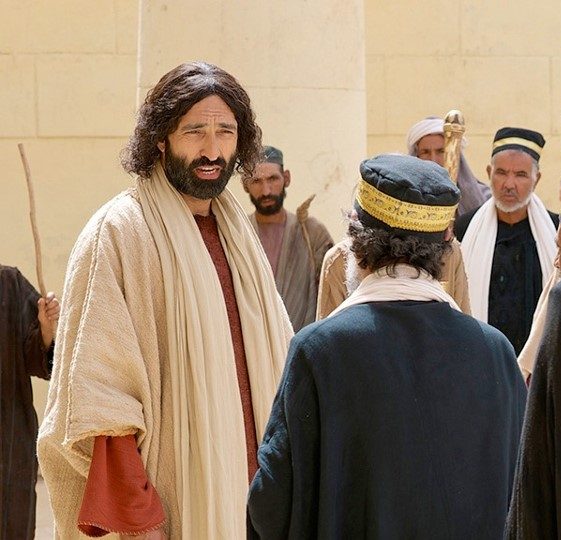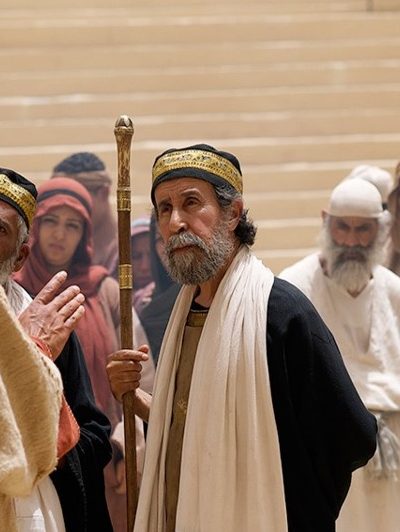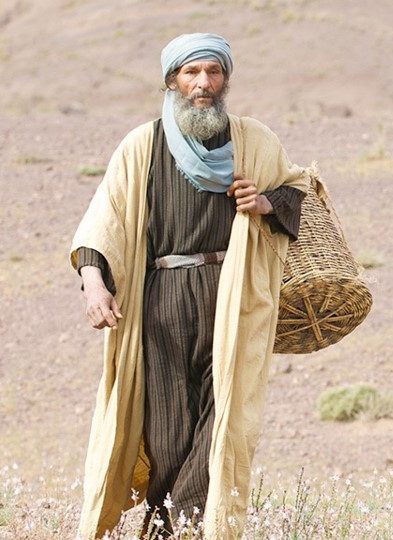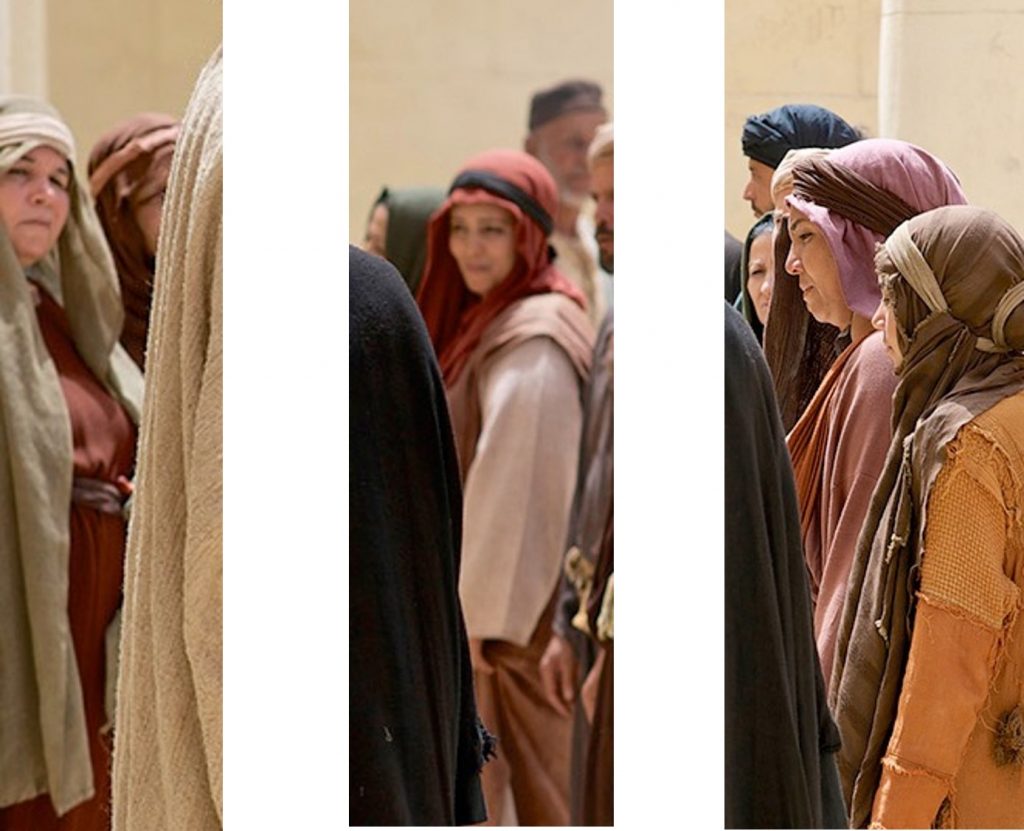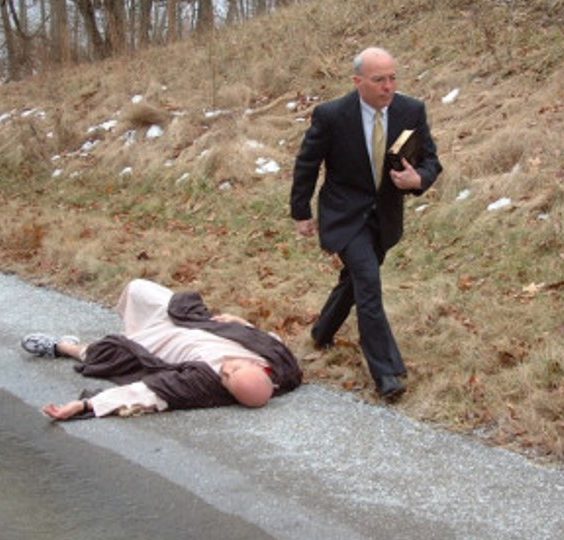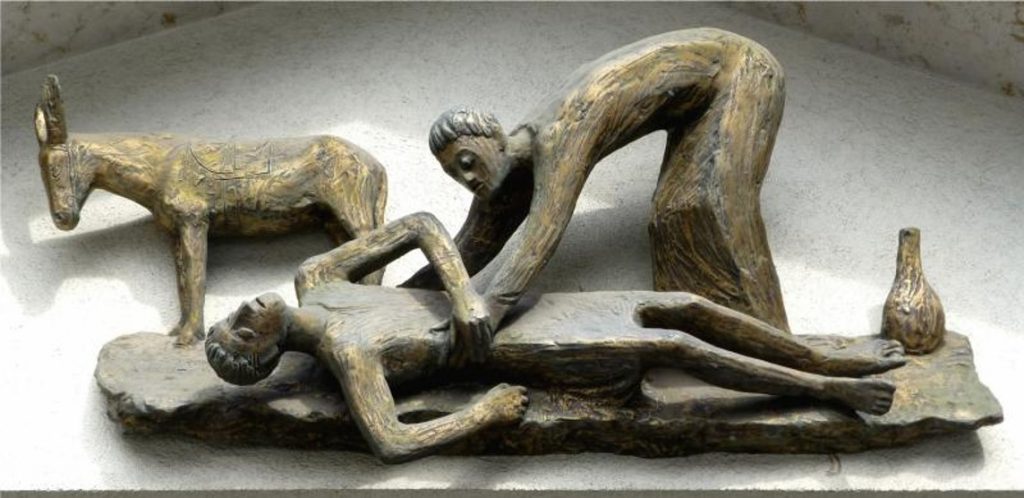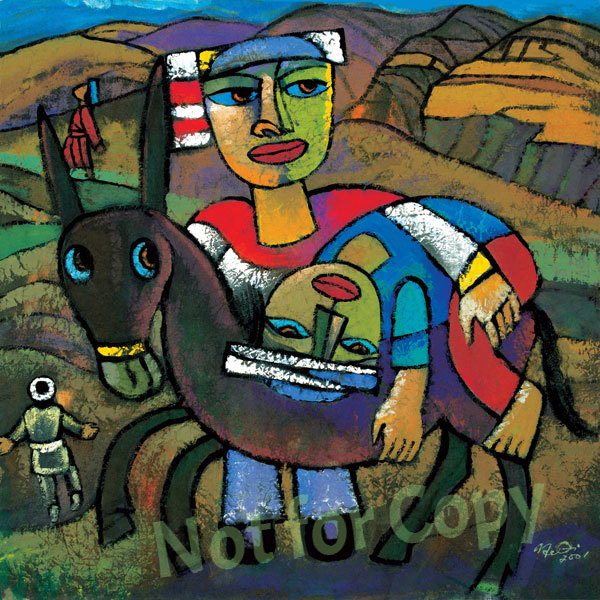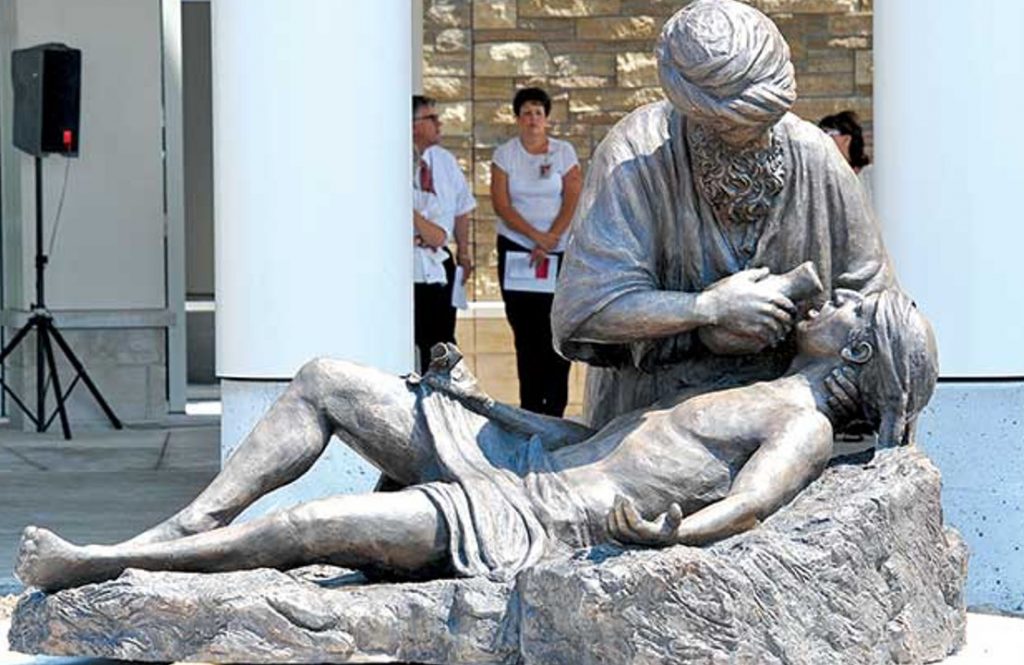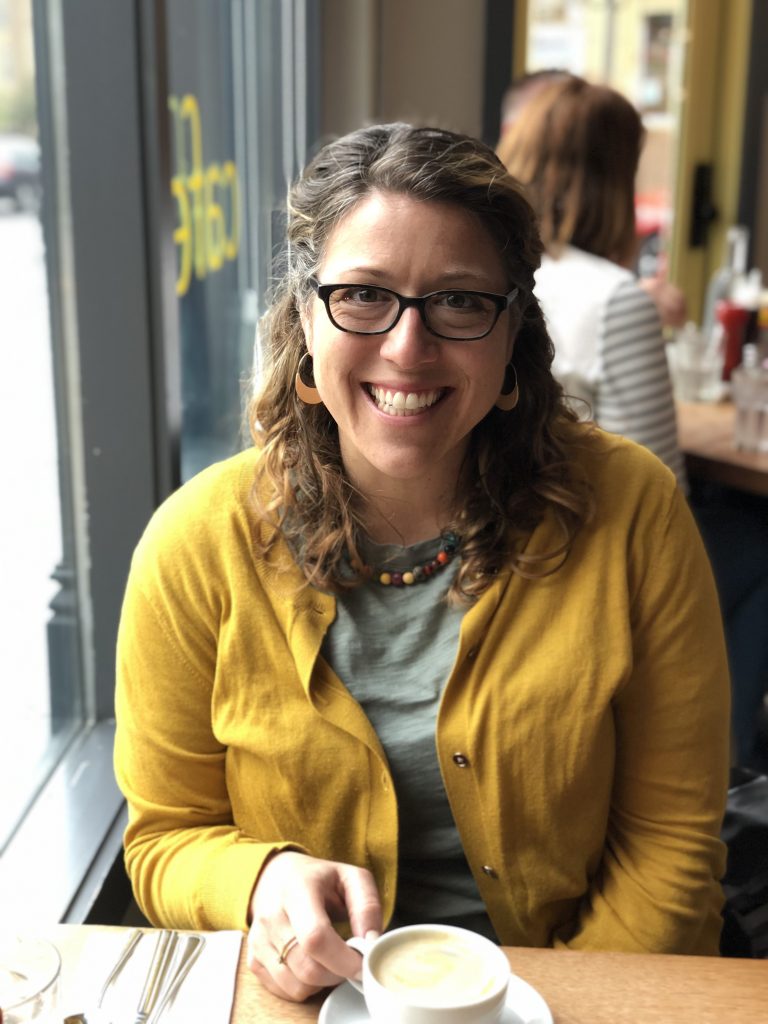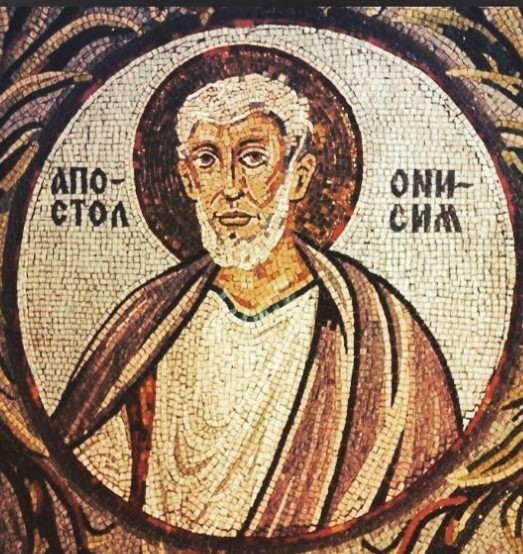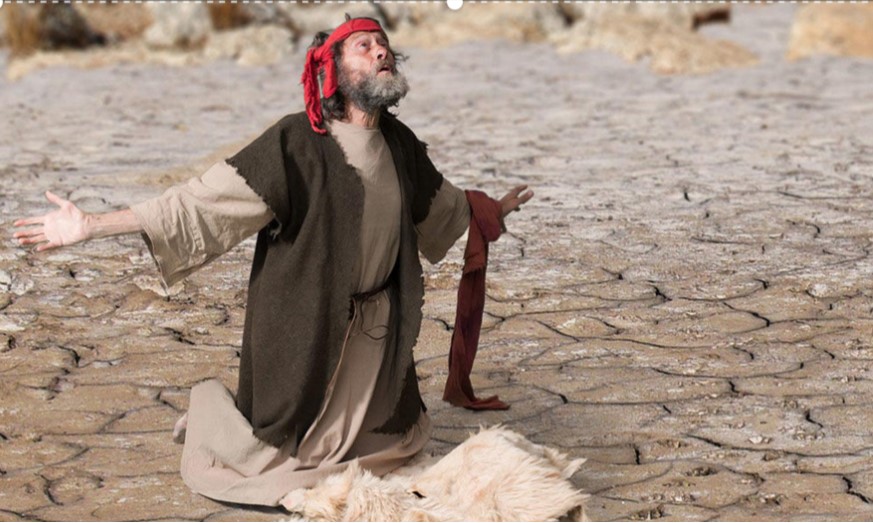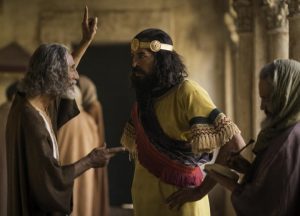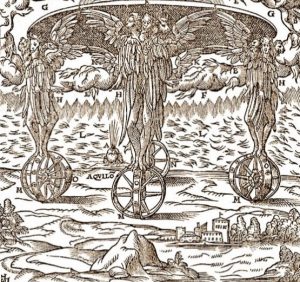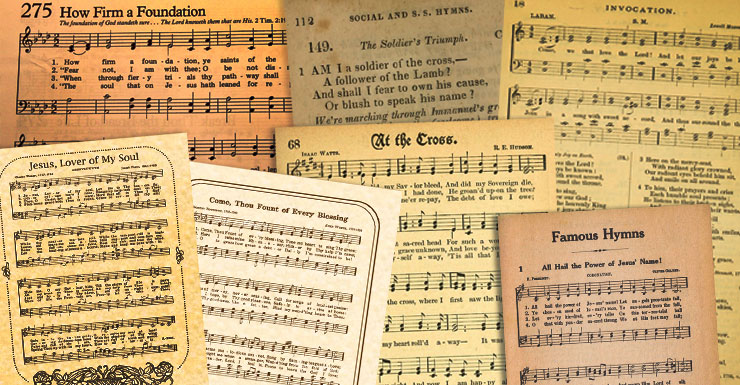
The music listed in this sermon (and more!) can be found in this Spotify Playlist.
John 1:1-5
This year we’re taking one Sunday each month to explore the music we sing together. The music we share in worship is such a central part of our life together; this is a chance to learn about its history, and consider what we wish to sing today. We started, last month, with the Hebrew psalms, a scriptural book of songs. Today we’ll move to ancient songs, canticles, and hymns from the early era of the church.
Much of the most ancient Christian music we have is part of the liturgy of the mass, music for worship services including communion. During special music Sundays, we often get to hear a whole mass setting; we will hear another in December. In our worship here, you are more likely to hear a small piece of a mass, such as a gloria, an alleluia, or the sanctus (holy, holy, holy). Like so many ancient songs, we do not know the tunes that were originally used with these pieces of the mass, but settings abound. One familiar hymn that finds its source in a mass is Let All Mortal Flesh Keep Silence (NCH 345). The words, originally in Greek, are ascribed to St. James the Less, the first Bishop of Jerusalem, and were used while bread and cup were brought to the table.
Other ancient Christian music finds it source in other worship services: the liturgy of the hours, short prayer services held throughout the day. This is where we find the canticles: songs of praise that take their text directly from the Bible, but not from the psalms. A few of you may remember some of these canticles from the summer series on Songs of the Bible a year and a half ago, such as the victory song of Moses and Miriam in the book of Exodus. The most famous of the canticles, however, are from the birth narrative in the beginning of the gospel of Luke: Mary’s song, the Magnificat, which we sang as our opening hymn; the song of Zechariah, known as the Benedictus; and the Song of Simeon, known as the Nunc Dimittis, which we’ll sing as our closing hymn.
One canticle you may never have heard of is the Canticle of the Three Holy Children, also known by its Latin name: Benedicte omnia opera. This canticle comes from the book of Daniel, although the passage is not included in most Protestant bibles. It’s a song of praise lifted up by Shadrach, Meshack, and Abednego, after they are freed from the fiery furnace. Like all the ancient canticles, you can find many different versions of this to listen to. I thought it might be interesting to sing it together as it might be traditionally sung in a liturgy of the hours. So, I invite you to imagine that you have just been freed from a fiery furnace and are full of gratitude to God; or that you’re sitting in a monastery, at vespers…
Our scripture reading today was from the beginning of the gospel of John. These are the words of a Greek song of praise to Jesus that precedes the recording of the scriptures. Unfortunately, we don’t know how it was originally sung, but translations and musical settings of this text abound. One of the most famous is a Latin text written by Marcus Aurelius Clemens Prudentius, a Spanish monastic, in the 5th century. Most of us know it (if we know it at all) by the title, “Of the Father’s Love Begotten.” When I saw that the translation in our New Century Hymnal was “Of the Parent’s Heart Begotten,” I assumed this was an attempt of the hymnal editors to be more inclusive in their imagery for God. Imagine my surprise when I discovered that the original Latin is Corde natus ex parentis, born from the heart of the parent. Somehow, in the 19th century this was translated from Latin to English variously as “Of the Father sole begotten,” “Born of the Father’s bosom” “Of the Father’s will begotten” “Son eternal of the Father,” and “Yea! From the Almighty mind He sprung.” It’s a fascinating example of patriarchal bias being perhaps stronger in modern times than it was in the early church. At any rate, our hymnal’s editors chose to commission an entirely new translation from the Latin. Let’s sing it together, Black Hymnal # 118, first and last verses.
Before we leave early Christian music, after an entirely too brief visit, I have to tell you one of the more fascinating stories I learned in my research. As you may recall, almost all early Christian music is designed for choirs to sing, not congregations. One early exception is O Splendor of God’s Glory Bright, a Latin hymn from the 4th Century.
The story of this hymn begins with Saint Ambrose, bishop of Milan. Ambrose was particularly passionate in defending the church against what eventually became known as the heresy of Arianism. Arianism is the idea that Jesus, while coming from God, is not as great as God, or made of the same stuff as God. If you are inclined to Arianism yourself (I know you’re out there), or if you can’t see what difference it makes either way, trust me: this was a major dispute within the church for centuries. Things got so hot in Milan between the Arians and the non-Arians that the churches led by Ambrose came under siege. In one telling, Ambrose and his followers locked themselves inside a church for safety, and kept cheerful by writing hymns proclaiming the divinity of Christ. Ambrose carefully crafted his songs with rhyme and meter so as to be easy for anyone to sing: a great strategy for spreading trinitarianism.
So let’s sing one of the very first congregational hymns of the church, one of the very first protest songs of the church.
I encourage you to take some time exploring Masses and Canticles and early hymns there and beyond. Let’s give thanks, for those early Jesus-followers who knew that words were not enough, but used music to enrich our worship life together, and to inform our theology. Let’s give thanks, to the God who inspired it all. Amen.

